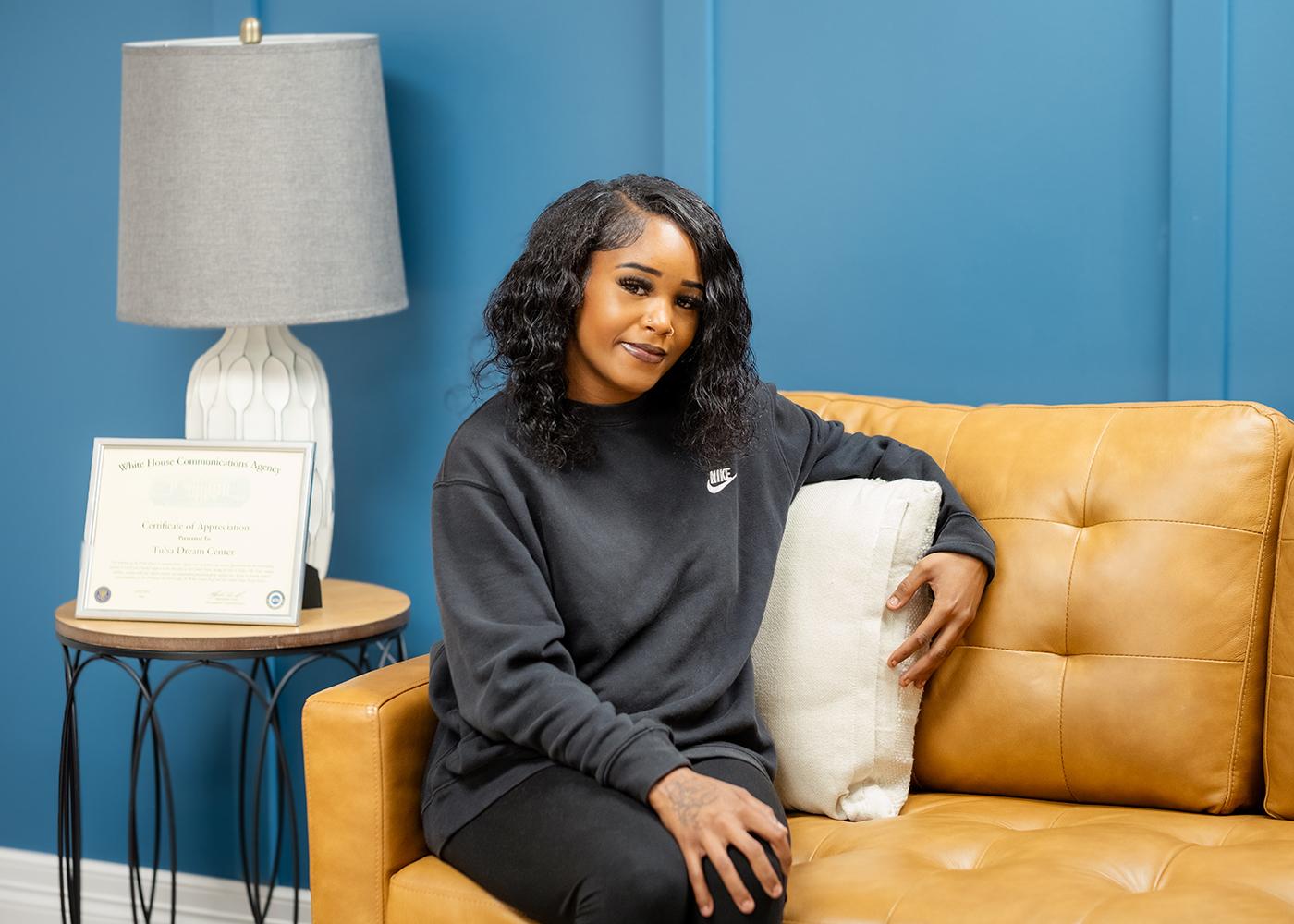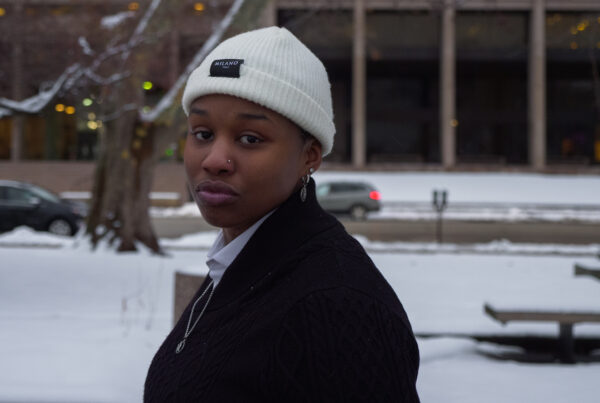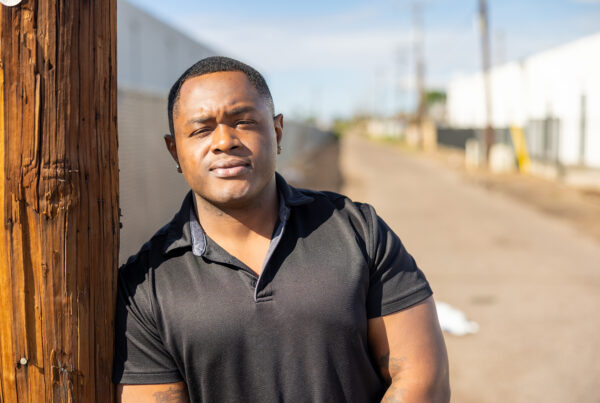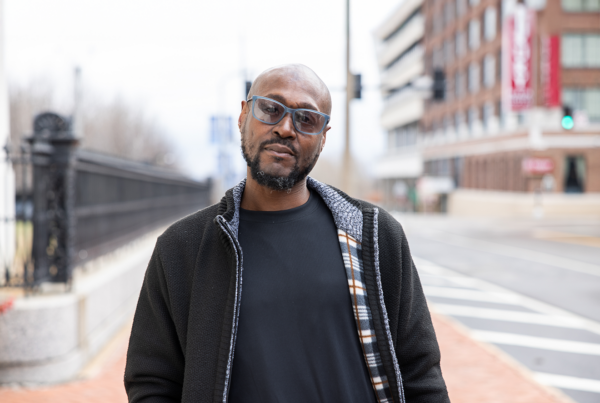Jailed in Tulsa, Jordan’s struggle to stay connected to her children became a fight for family and stability.
On a weekday afternoon in Tulsa, Oklahoma, Jordan sat in a hospital room, her voice soft but steady. Her stepmother had just suffered a heart attack, yet Jordan insisted on talking. “I’m willing to share,” she said quietly, balancing an immediate family crisis with the longer, heavier story of how her life became entangled in the criminal justice system.
Jordan does not fit the image conjured by the words “domestic assault and battery.” She speaks in a near-whisper, apologizing when she cries, pausing when hospital staff pass through. Behind the softness is a young woman hardened by responsibility. By the time of her arrest, she was already fighting for housing, childcare, and a chance at stability. At 20 years old, she carried the weight of two small children, a turbulent relationship, and weeks in jail that pulled her away from everything she was trying to build.
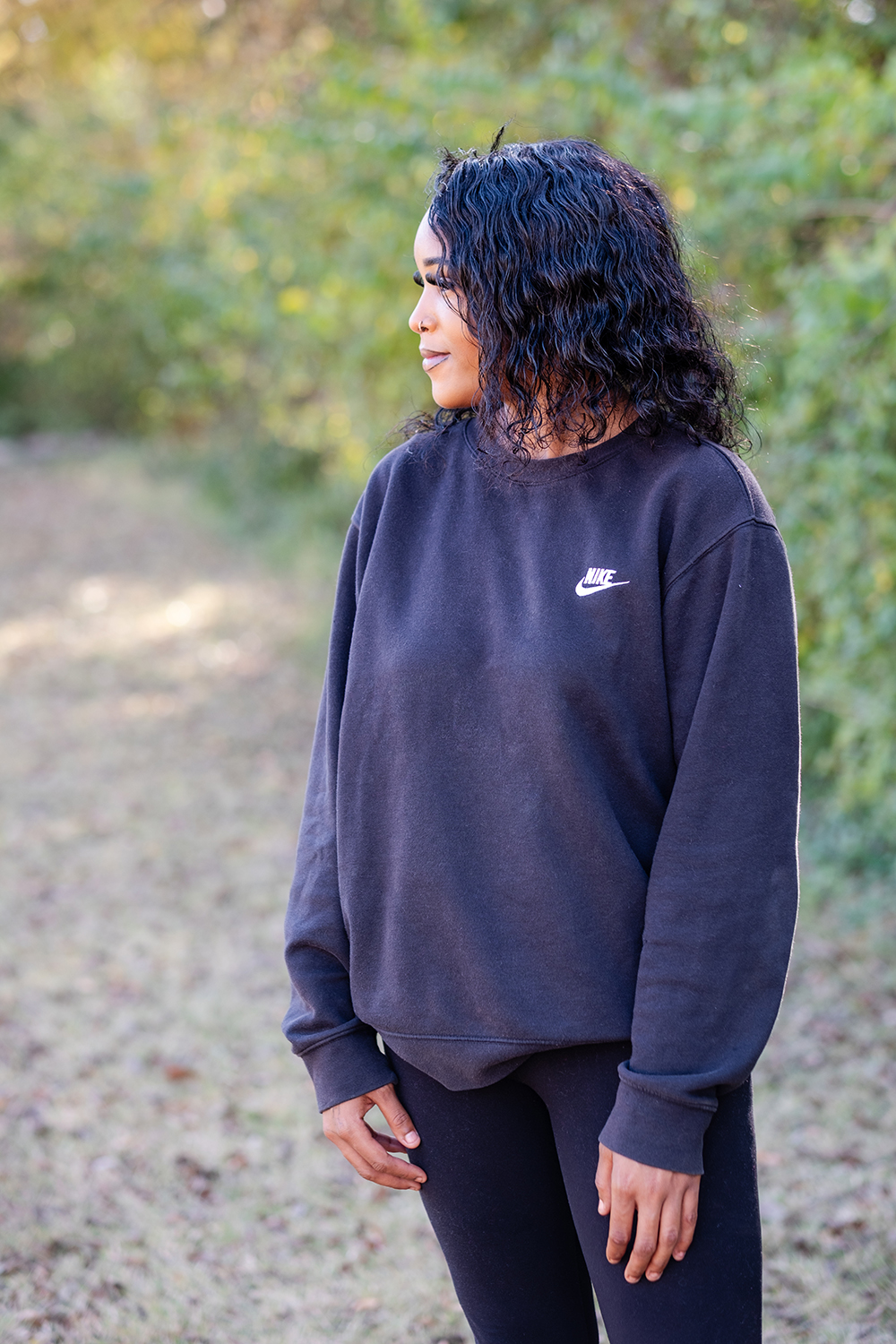
The chain of events began, as so many crises do, with a small request. It was a Friday, and Jordan needed to get to the housing authority before it closed. She asked her children’s father if he could watch their son and daughter while she made the appointment. She’d been living with her mom and the appointment was for a housing program that would give her and her kids some much-needed space. He agreed, but complications quickly arose. By afternoon the plan unraveled, and a simple request turned into arguments that spiraled. His girlfriend intervened. Tensions escalated.
Jordan eventually called her mother and grandmother, who came to stand with her. When the children’s father arrived alone, what began as words soon became physical. Jordan says she was pushed down a flight of stairs. She got back up, chased him outside, and threatened to throw a rock at his car. Later, when windows were broken on that car, the police were called. What Jordan thought was his vehicle turned out to belong to someone else. Charges were filed: domestic assault, battery, and property damage. A protective order soon followed.
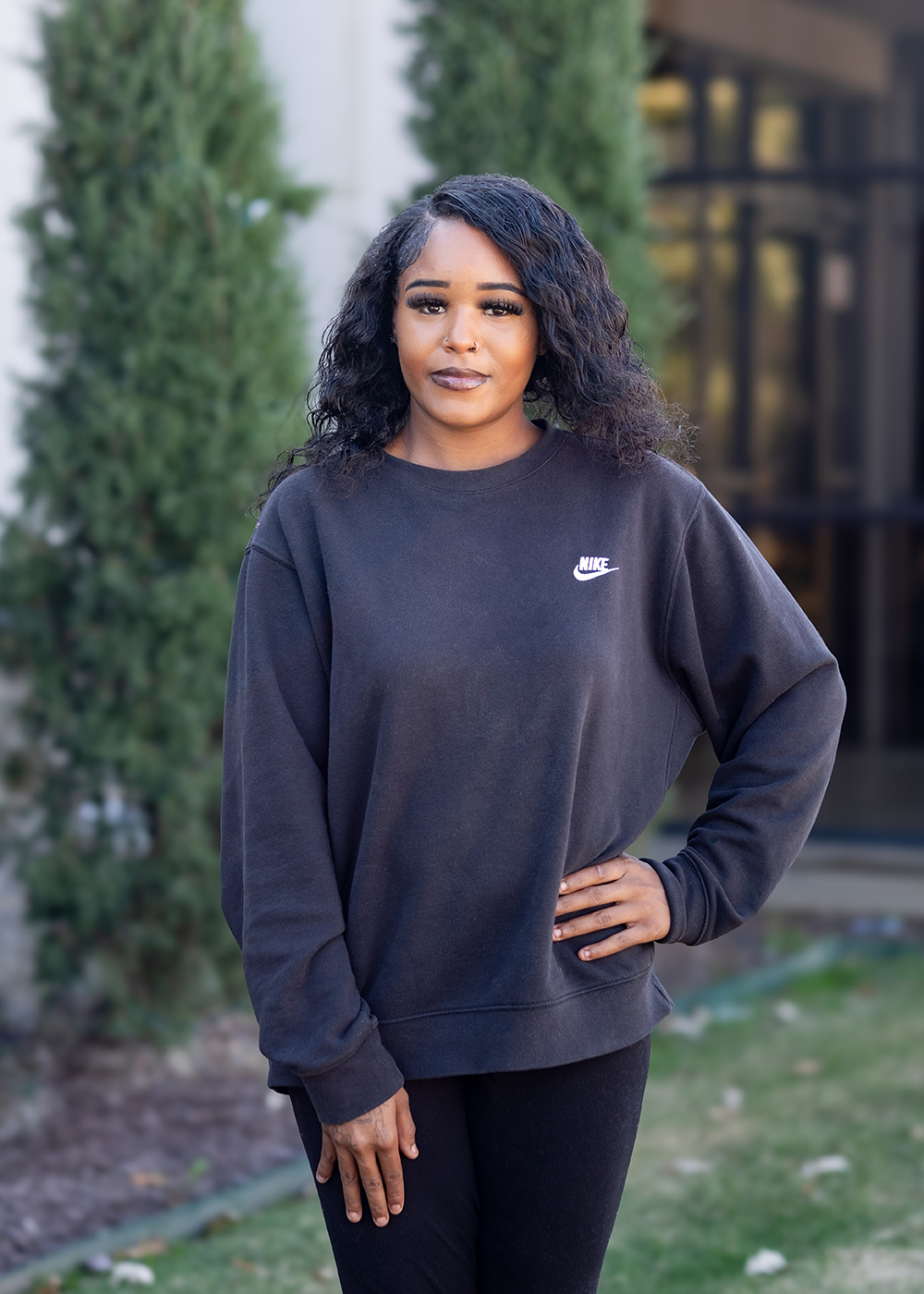
“I don’t know anything about court systems.”
Jordan spent nearly five weeks behind bars – two in the city jail and another two and a half at David L. Moss Criminal Justice Center – all because she couldn’t afford her $5,000 bail. It was her first time in custody and she was disoriented, asking questions of anyone who would answer. “I don’t know anything about court systems,” she admitted.
It was another woman inside who first told her about The Bail Project. Soon after, her mother reached out from the outside. Within days, Bail Project staff were helping Jordan secure her release, offering not just bail assistance but information about resources for school, childcare, and housing.
“I just started breaking down crying.”
Still, the separation from her children cut the deepest. Their father had them during her detention but refused her calls. Only when her mother briefly took the kids did Jordan hear their voices. “I just started breaking down crying,” she recalled. Her son, not yet two, spoke more words than she remembered. “It felt so good just listening to them talk to me while I was away from them.”
When Jordan walked free, she went straight to the apartment complex where she was still in the process of securing housing. While she had been inside, her mother ferried paperwork back and forth on her behalf. Now, all that remained was a deposit. She paid $50, signed the final forms, and received the keys. “I got my furniture and I moved in on the seventh,” she said with quiet pride.
It was the first real foothold for her and her children, aged three and two. A home of their own.
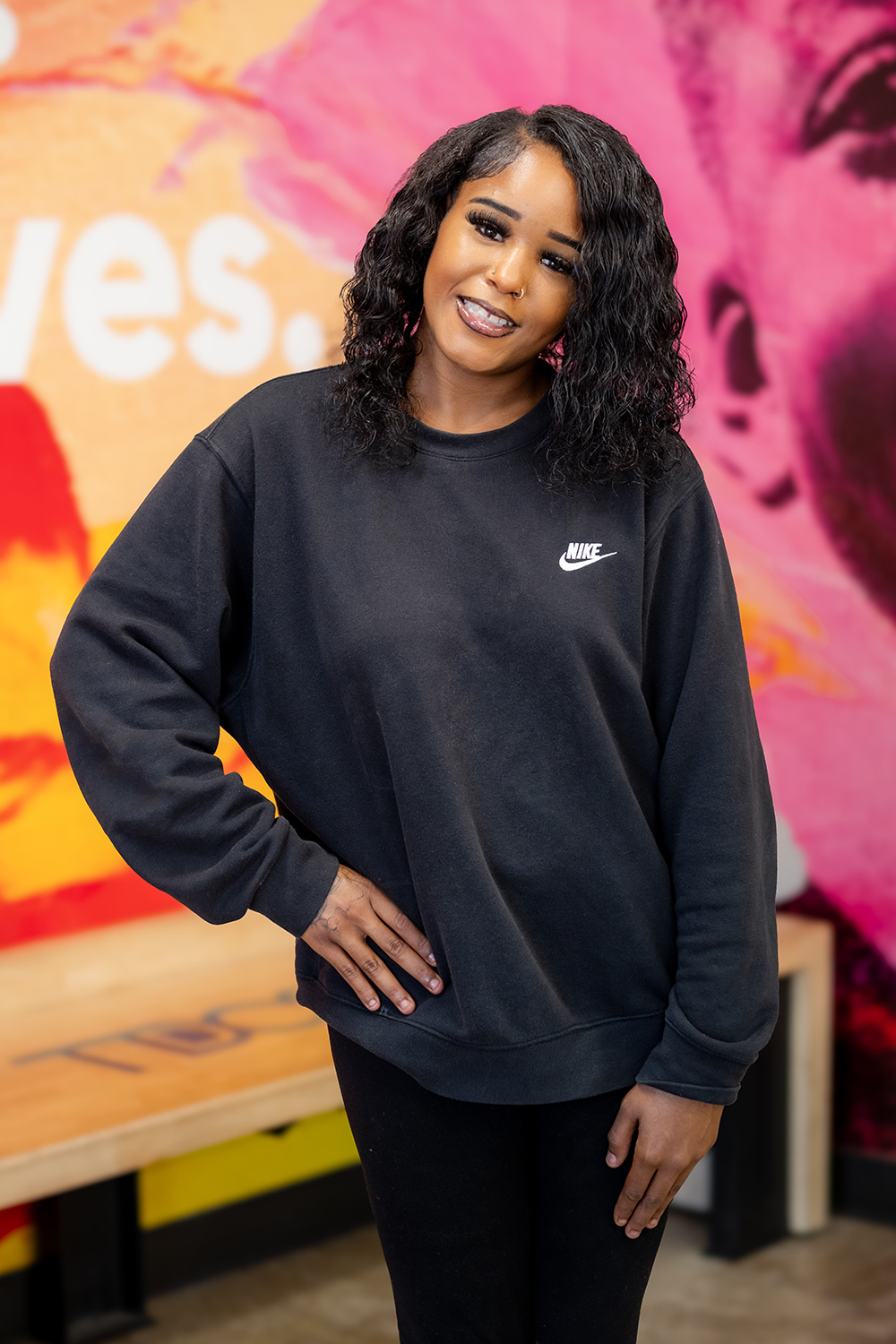
Her goals now are clear. She wants to raise her children in peace and pursue a career as a firefighter. An aunt she calls her godmother has connected her with friends in the Tulsa Fire Department, who have encouraged her training. “That’s what I’m working toward,” she said.
But the past is not so easily left behind. The no-contact order prevents communication with her children’s father, though co-parenting remains an unavoidable reality. Jordan admits she wishes for better terms, if only for the sake of her children, but she knows the risks of reopening old wounds.
“I’ve been putting me and my kids first.”
What she has, for now, is resolve. “I’ve been putting me and my kids first,” she said.
Jordan’s story is one of contradictions: softness and strength, loyalty and betrayal, fragility and resilience. She has been both caretaker and defendant, both partner and adversary. At 20, she has endured more than many twice her age, yet she still speaks about the future with hope.
She has already begun carving a new path. A set of apartment keys, two small children at her side, and the possibility of a career built on saving lives rather than salvaging a relationship.
Jordan’s story is not just about an arrest or a court case. It is about the precarious balance young mothers must hold in a system stacked against them, the way love can entrap as much as it sustains, and the resilience it takes to start again after falling.
Thank you for reading. The Bail Project is a 501(c)(3) nonprofit organization that is only able to provide direct services and sustain systems change work through donations from people like you. If you found value in this article, please consider supporting our work today.







